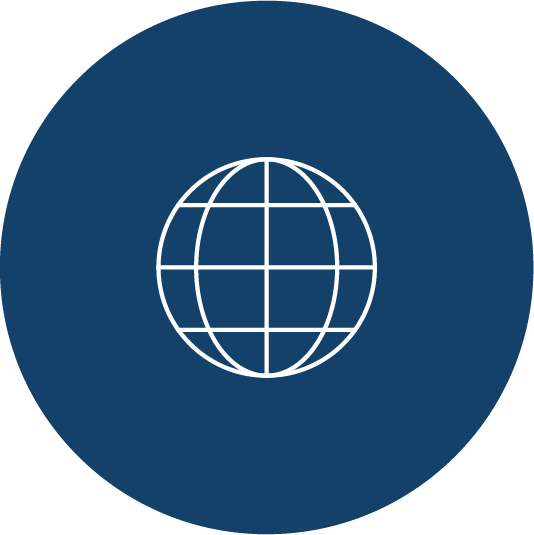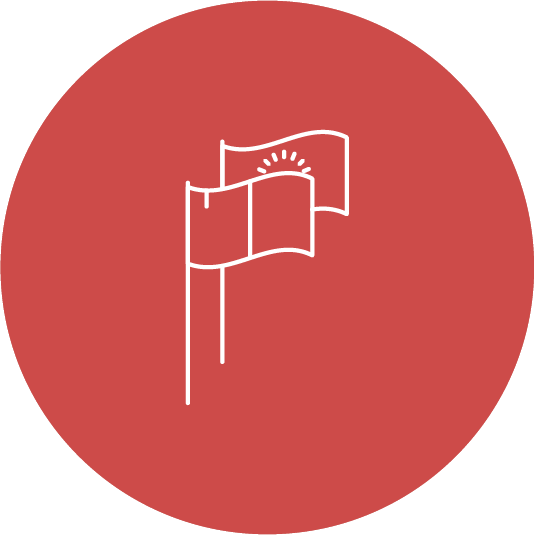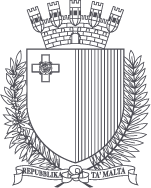Excellencies,
It is my great honour to address you at this traditional gathering, for the first time since my appointment as Minister for Foreign Affairs and Trade Promotion.
At the outset, I would like to express my appreciation to all of you – resident and non-resident representatives of the many governments from all over the world with which Malta has strong ties – for your incessant engagement with Malta, and with my Ministry during the course of the past year.
I already had the pleasure of meeting some of you when I served as Minister for Home Affairs and National Security prior to last June’s general election. And in the past seven months, I have had the privilege to get to know and work with most of you, and I look forward to continue doing so even more – on all levels – in the coming year.
Excellencies,
The turn of the year provides us with a welcome opportunity to review the achievements and setbacks of the last year, and to set goals for the new one. 2017 was a particularly thriving and politically rewarding year for Malta, even if marred by a tragic event that saddened and angered us all in an indescribable way – an attack not only against the victim herself, but also one against Malta and the values we cherish.
2017’s beginning ushered Malta’s first Presidency of the Council of the European Union (EU). This was a demanding, yet fulfilling task that signalled a number of deliverables which achieved tangible and perceivable results. The success of our EU Presidency was also essentially, and in various ways, a result of our continued and extensive cooperation and dialogue.
As the largest political union, single market, and aid donor in the world, the EU is a key global player. This status is not something we take for granted, and we fully understand the need for member states to continue working closely together to ensure our message remains relevant, and our power of attraction remains strong. In this context, we will continue to remain actively engaged with our EU partners, with whom I have already had many opportunities for exchanges.
Malta supports a policy of upbeat, yet constructive momentum towards Western Balkan countries prospecting for EU enlargement. We have often been told by interlocutors in this region that Malta is, to them, a model they would like to emulate. Every effort to bring the Western Balkan countries closer to the EU will find Malta readily on the forefront.
2017 also witnessed the opening of Malta’s embassy in Ankara, aimed at enhancing Malta’s global reach and diplomatic efforts, both political and economic. Notwithstanding recent developments, Turkey remains an important partner for the EU, and keeping our channels of communication open will benefit all. Malta welcomes the results achieved to date through the EU-Turkey Statement, and positively notes Turkey’s role in providing for over 3.4 million refugees. In fact, in October 2017, Malta resettled 17 Syrian refugees under the 1:1 (one-is-to-one) scheme.
Excellencies,
Ongoing Brexit negotiations will this year be moving into the second phase, as agreed by the European Council. Malta remains committed to helping to bring the EU closer to European citizens. Undoubtedly, my country will continue to focus on maintaining the harmonious relationship enjoyed for years with the United Kingdom (UK) and, faithful to our conviction that the citizen comes first, address the concerns of the Maltese community living there.
Excellencies,
Peace and stability in the Mediterranean will continue to feature as a principal priority of Malta’s foreign policy – an onerous task indeed in current circumstances. We need to continue addressing those factors that generate lack of confidence, insecurity, disillusionment, and dissatisfaction among people from all walks of life.
The situation in Libya remains a cause for serious concern. We cannot pretend that Libya’s problems belong to Libya alone, and look the other way. Last November, I visited Tripoli and held meetings with Prime Minister Fayez al-Sarraj and Foreign Minister Mohamed Siala. Malta will continue to back the Government of National Accord in its efforts to re-establish the peace and prosperity that the Libyan people deserve.
In the Libyan capital, I also expressed our unwavering support for the Action Plan for Libya, spearheaded by the United Nations (UN) Special Representative, Ghassan Salamé. The way forward is clear: a Libyan-owned and Libyan-led inclusive political process constructed on the amended Libyan Political Agreement. All parties need to come together and successfully conclude discussions under the auspices of the UN.
Malta also remains proactively engaged – with a positive and future-oriented approach – with all our North African partners. In this spirit, the official visit to Tunisia by Malta’s President, Marie-Louise Coleiro Preca, in November paved the way for new exchanges and cooperation in the years to come between the two countries. During its EU Presidency, Malta also organised, for the first time ever, a working trip to Tunisia for delegates of the EU Council Working Group on Counter Terrorism. I wish to express my gratitude to the Tunisian government for its hospitality and competent facilitation during this visit.
Regional dialogue remains of utmost importance. Likewise, the amplification of synergies among regional mechanisms is imperative. The ties between the EU and the League of Arab States need to be further reinforced to better address shared challenges. Similarly, the Organization for Security and Co-operation in Europe (OSCE) has an important role to play in the region, especially in addressing security threats. As I thank Austria for its excellent OSCE Chairmanship in 2017, I wish to welcome Italy’s Chairmanship, which promises even more focus on the Mediterranean.
It is no secret that Malta has been the beacon for Mediterranean issues within the OSCE since 1975, especially due to the adoption of the Helsinki Final Act that included a Mediterranean chapter. Since 2015, Malta has called on the OSCE to dedicate more attention to security in the Mediterranean. With this in mind, Malta strongly urges the incoming Chair-in-Office to appoint an OSCE Special Representative for the Mediterranean.
Excellencies,
Only a few weeks ago I visited the Holy Land, where I held constructive, high-level discussions with Israeli Prime Minister Benjamin Netanyahu, as well as with Palestinian President Mahmoud Abbas, and Foreign Minister Riyad al-Maliki. The situation on the ground remains volatile, particularly in light of the recent declaration by the President of the United States (US), Donald Trump. Our support for the Two-State Solution, with Jerusalem’s future status being determined via meaningful negotiations between Israel and Palestine, remains firm. And we continue to urge all parties to overcome the obstacles that block the path to peace. Any unilateral arrangements can only lead to fragmentation and, as we have seen, unrest.
Recent, unprecedented intra-Gulf tensions have also exacerbated the pressure in the Middle East. Notwithstanding, Malta remains committed to maintaining strong relations with all Gulf countries and hopes that the integrity and cohesion of the Gulf Cooperation Council is not prejudiced in any way. In this context, Malta appreciates the unrelenting Kuwaiti mediation efforts and hopes for an early conclusion of this predicament. I also look forward to discussing these endeavours with my Kuwaiti counterpart during an official visit to Kuwait later this year.
In line with its overall strategic objective to serve as a location for international dialogue, Malta launched, in conjunction with the United Arab Emirates, the headquarters for the Global Council for Tolerance & Peace at the end of last year.
Excellencies,
Malta also remains equally committed and engaged with the EU’s Eastern Partners. 2017 was a particularly active year, with the reciprocal state visits of President Petro Oleksiyovych Poroshenko and President Coleiro Preca to Valletta and Kiev respectively, as well as a number of bilateral meetings that recently took place with my counterparts from Georgia and Armenia.
The Eastern Partnership Summit last November underlined the importance of a stable, peaceful, and secure neighbourhood. Increased people-to-people contacts, particularly among the younger generations, are of utmost importance. I am therefore honoured – not only as Foreign Minister, but also as Malta’s former Home Affairs Minister – that the Visa Liberalisation Action Plan with Georgia and Ukraine entered into force during the Maltese Presidency of the Council of the EU. Allow me to point out that this Eastern Partnership does not imply a choice between Russia and the EU.
Concerning Russia, during a recent meeting in Vienna, Foreign Minister Sergey Lavrov and I agreed on the importance of nurturing our close cooperation at the political, economic, cultural, and people-to-people levels. Both sides are fully committed to visualising the results of talks held in Moscow in November 2016, between our Prime Ministers, will continue to bear the desired fruit.
Excellencies,
Our historic transatlantic relationship remains a key component of Malta’s foreign policy. To this end, we continue to engage actively on issues of mutual interest and to build on our relationship with the US, as reflected in my meetings with Senator Rand Paul and Deputy Assistant Secretary of State Conrad Tribble last year.
We also continue to engage bilaterally, and on a regional level with Asia. In November, I had the honour to participate at the Asia-Europe Foreign Ministers’ Meeting in Myanmar. On the bilateral front, Malta reiterated its commitment to the Medium-Term Cooperation Plan with China, the first such plan China has signed with a European country. Last year also marked the very first visit by a Japanese Prime Minister to Malta, Shinzō Abe.
Africa continues to gain prominence in our foreign relations, as evidenced by the Maltese President’s visit to Ghana last July. While acknowledging the challenges facing Africa, the continent also presents us all with a myriad of opportunities. The successful African Union – European Union Summit of November 2017 identified investment, knowledge, and skills for jobs, plus democracy and governance as priority areas. I believe increased cooperation in all of these priority areas is the way forward. The Summit’s overarching theme of investing in youth was also particularly appropriate: Africa is indeed a young continent. And it is our role to help maximise the energy and enthusiasm of its young people to bring about the change they want to see in their respective countries.
Excellencies,
Permit me to say a few words on migration. This phenomenon has been a topmost priority for Malta for a long time. And it is set to remain so, at least in the foreseeable future. In February, an informal summit was held in a bid to keep the situation of the Central Mediterranean route under the spotlight. This was followed-up by a meeting of the Joint Valletta Action Plan for senior officials. At EU level, we pushed for progress on the EU’s Partnership Framework with Niger, Nigeria, Senegal, Mali, and Ethiopia. While at global level, Malta generated EU guidelines to feed into thematic consultations. And on a bilateral level, Malta worked on enhancing its co-operation with the countries of origin, with the aim to facilitate the return of irregular migrants to their home countries.
Concerning the external aspects of development cooperation, in 2017 we marked the adoption of the new European Consensus for Development. The Consensus is a milestone aligning the EU’s development policy with that of the United Nations’ 2030 Agenda for Sustainable Development, and Malta will remain committed to its full implementation. The European External Investment Plan was also another deliverable of Malta’s EU Presidency, as an important European instrument that boosts private and public investment in partner countries to address obstacles to growth, while also addressing the root causes of irregular migration.
A first was also registered in terms of the Ministry’s engagement with Maltese development NGOs through the SKOP platform, in a Presidency project entitled ‘Education for Change’. This was co-financed by Malta’s Official Development Assistance fund and was aimed at bringing the UN’s Sustainable Development Goals closer to the understanding of the citizen in relevance to daily life.
Excellencies,
As you are now aware, following the last general election in June, the Ministry for Foreign Affairs was entrusted with the additional remit of Trade Promotion. This signifies that the Ministry is now charged with exploring new possibilities to provide further impetus in promoting Malta’s commercial interests internationally, and to effectively assist Malta-based entrepreneurs to tap into international market opportunities. This is being undertaken in conjunction with Trade Malta, the executive agency dedicated to supporting Malta-based businesses to reach international markets with their products and services.
As I had the opportunity to underscore during the first edition of the International Business Awards in November 2017, the role of the Ministry is to ensure that our diplomatic missions abroad become an important reference point for Malta-based entrepreneurs.
Various capacity-building options will continue to equip our diplomatic staff with the right tools to promote Malta’s commercial interests. What we certainly possess is the verve to pursue this goal together with all those countries that wish to engage positively with Malta. With the objective of actively seeking business opportunities in emerging and developing markets, where we have, until now, been underrepresented. Earlier last summer, Malta announced that it is actively seeking to open its first diplomatic representation in sub-Saharan Africa. This is a well-researched decision. Sub-Saharan Africa is undergoing rapid change, change that will transform many African countries creating substantial opportunities.
I could see these opportunities first hand when I accompanied the President Coleiro Preca on her state visit to Ghana, together with a sizeable trade delegation of 21 entrepreneurs led by Trade Malta. The enthusiasm of the Malta-based business delegates was tangible, as was the openness of our hosts to seek new avenues of convergences between our two countries.
Excellencies,
2017 marked the 50th anniversary since the first Permanent Representative of Malta to the UN, Dr Arvid Pardo, delivered his landmark speech urging countries to consider the resources of the oceans beyond national jurisdiction as the common heritage of mankind. A successful symposium held last December in Valletta discussed the future of global governance in the presence of prominent figures in the field. A side event in New York, a speech in the General Assembly, plus awareness-raising among primary and secondary school students about protection for our oceans, were also held.
Global maritime affairs took centre-stage in October, when Malta hosted the Our Ocean Conference organised by the EU, announcing a number of voluntary commitments to protect 30 per cent of all our territory as a Marine Protected Area. The Regional Marine Pollution Emergency Response Centre for the Mediterranean Sea, hosted in Malta, celebrated its 40th anniversary, and we remain committed.
I am also pleased to recall that in December, for the 11th consecutive instance, Malta was successfully re-elected in Category C of the Council of the International Maritime Organization. I would also like to take this opportunity to publicly thank those who have supported our candidature.
Malta will also be looking forward to mark the 30th year since the 1988 United Nations Climate Change Conference, when Malta had proposed a comprehensive global strategy to protect the weather and climate and which led to the subsequent adoption of Resolution 43/53. The Maltese Initiative marked the beginning of a complex process that led to two international legal instruments: The United Nations Framework Convention on Climate Change, and the Kyoto Protocol.
Excellencies,
Safeguarding human rights will also retain importance in 2018. This year, on a global level, we commemorate the 70th anniversary of the UN’s Universal Declaration on Human Rights. Malta will take part in this commemoration through a number of initiatives.
Throughout its EU Presidency, Malta tried to keep up momentum on the protection and promotion of the right to freedom of religion and belief, the rights of migrant children and LGBTI people. And, as a new member of the Equal Rights Coalition, Malta was also active in sharing its own experience of pushing through legislative and policy changes to defend LGBTI people who are vulnerable to being discriminated against, even in today’s modern societies.
Last year, Malta signed the Istanbul Convention on preventing and combating violence against women and domestic violence, plus signed and ratified the Council of Europe Convention on Trafficking in Human Organs. Shortly, Malta will also sign and ratify Protocol No. 15, amending the Convention for the Protection of Human Rights and Fundamental Freedoms. In addition, this year, Malta will also sign and ratify the Additional Protocol to the European Charter of Local Self-Government on the right to participate in the affairs of a local authority.
Excellencies,
Besides the UN and the EU, in 2017 Malta pursued its diplomatic multilateral efforts through the Commonwealth. For the past two years, Malta has been the Chair-in-Office and we now look forward to the Commonwealth Heads of Government Meeting (CHOGM) in April 2018 in the UK. Malta is determined to see the Commonwealth group of nations embark on a more assertive, influential, and beneficial lease of life to add global value.
Following two years of work, the Commonwealth Small States Centre of Excellence will be launched at CHOGM 2018. This is the product of Malta and the Commonwealth’s commitment made during CHOGM 2015, which was held in Malta. It will be a predominantly web-based entity to support small states in attaining socio-economic goals as committed to under the UN’s Sustainable Development Goals Framework. With linkages across the world, Malta is fully committed in garnering the necessary support from the Commonwealth member states in successfully launching the platform from which the centre – to be based in Malta – will carry out the majority of its operations: providing relevant knowledge-based tools and practical solutions, while sharing best practices to promote small state development.
Excellencies,
In the coming months and years, Malta’s bid to join the UN Security Council as a non-permanent member for the term 2023-2024 will increasingly become the focus of our work. Should Malta be elected, it would be exactly 40 years after Malta served for the very first time in 1983-1984. As a member, Malta will contribute towards international efforts to maintain peace and security on a global level. I strongly believe our experience, ideas, and energy can benefit the international community as a whole.
Excellencies,
Together, we will continue to work closely to establish, enhance, and promote our relations. A stronger political dialogue and an increase in exchanges, not least from the commercial and the people-to-people perspective, should continue to be our response to promote stability and growth.
On 20th January, Malta will be launching Valletta’s 12-month stint as the European Capital of Culture. This year-long status will add vigour to our desire to contribute to the cultural development of our capital city while celebrating the cultural features Europeans share. The power of culture to bring people together and stimulate positive growth is, indeed, unparalleled.
In 2018, Malta will continue advocating the need to create conducive conditions for dialogue, understanding, and solidarity between nations, and for a bright future for every global citizen. In this context, we will continue to collaborate in peace and friendship with the rest of the world, enhancing Malta’s long-term value proposition and relevance to other countries. This has the ultimate objective of attaining a rules-based global order, as well as building a deeper appreciation of the cornerstone elements that underpin our foreign policy.
While I look forward to working closely with you and your governments in addressing both challenges and opportunities in the future, I extend to you and your loved ones my warmest wishes for good health and serenity. Please also convey to your Foreign Ministers my very best wishes for them, and for the countries you represent with such distinction.
I now ask you to raise your glasses and join me in toasting our and our families’ good health, to our continued cooperation and friendship, and to a rewarding and fulfilling New Year ahead of us.
Thank you.






